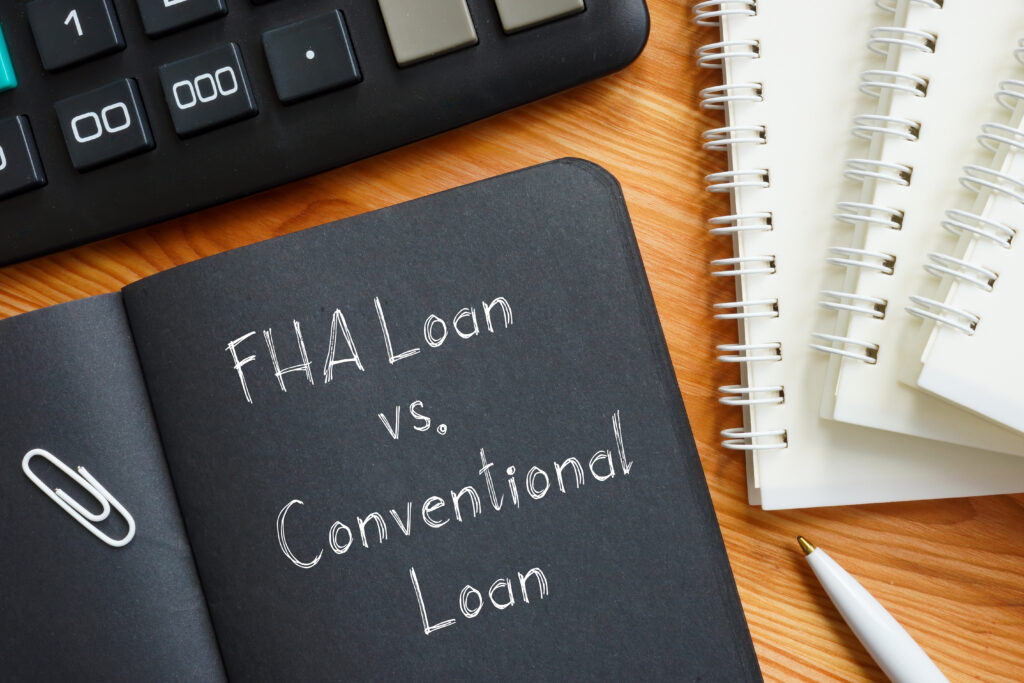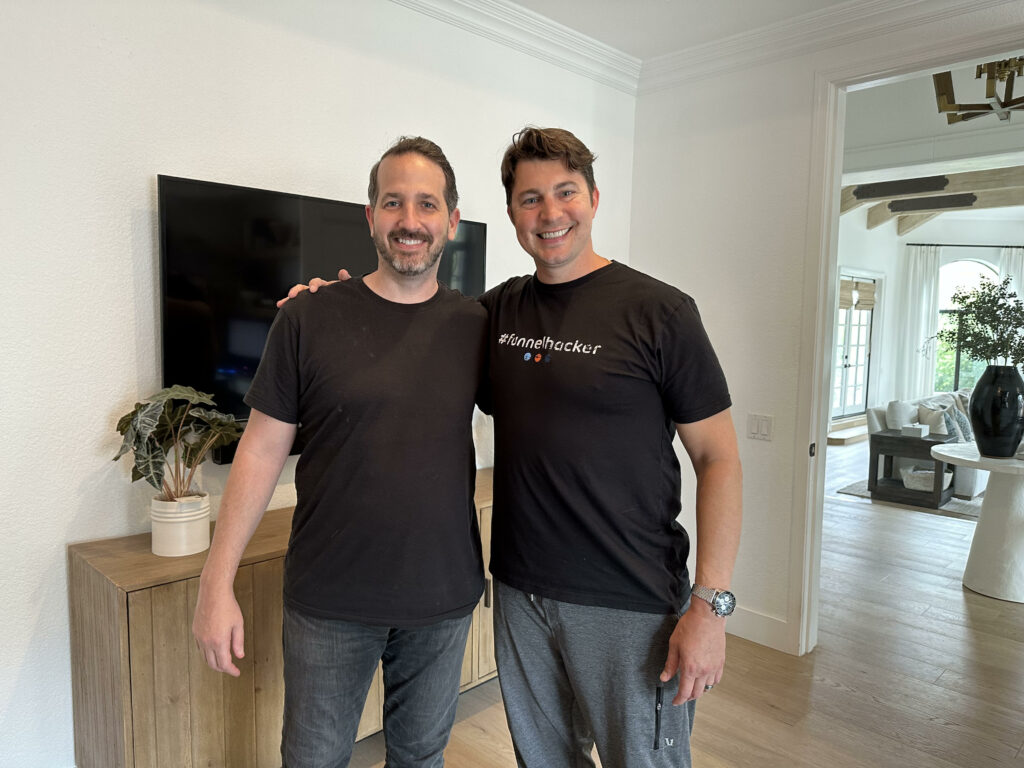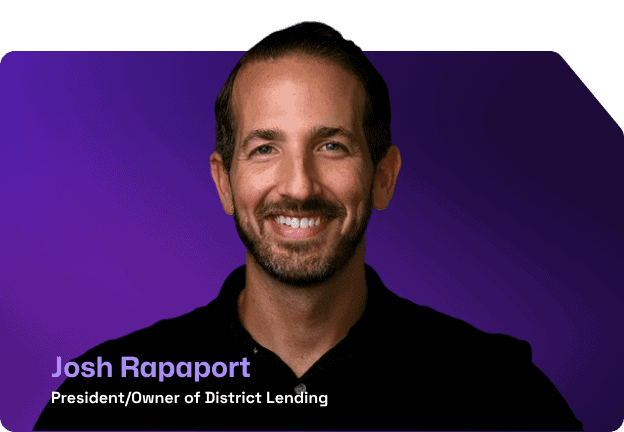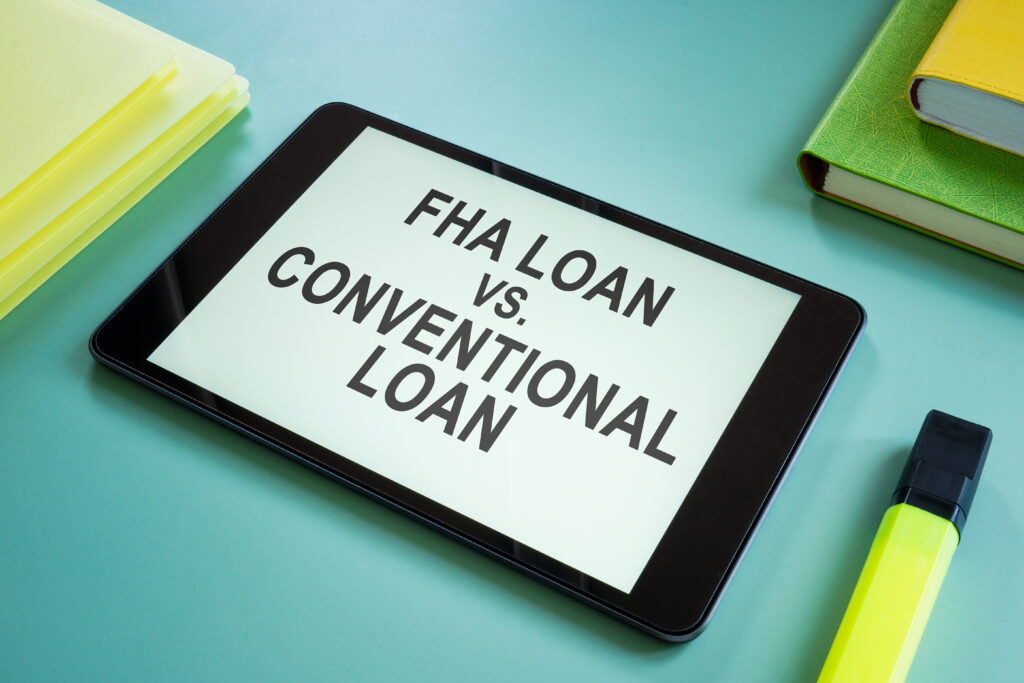When should I get an FHA vs Conventional loan? What are the pros and cons of each? Do I even qualify? How will I know?
We will answer those questions and more in this article about FHA loans vs. conventional loans, including their benefits, differences, and potential drawbacks before you decide.
What is the difference between FHA and conventional loan?
- FHA loans are backed by the government; you can qualify with a lower credit score and it’s easier to get approved.
- Conventional loans are backed by private lenders and generally allow lower down payments.
Okay, let’s get into more details so you can make the most informed decision when financing the purchase of your home.
Table of Contents
Pros and Cons of FHA vs Conventional Loan

Here are the key differences between FHA and Conventional loans:
- FHA loans are backed by the government, so you can qualify with a lower credit score and it’s easier to get approved.
- Conventional loans are backed by private lenders and generally allow lower down payments.
What are FHA Loans?
- FHA loans, backed by the Federal Housing Administration, provide an appealing option for homebuyers who may face challenges in meeting traditional lending criteria.
With less-restrictive qualifications, FHA loans are suitable for individuals concerned about saving for a down payment or possessing a lower credit score.
Unlike conforming loans that adhere to the lending standards established by Fannie Mae and Freddie Mac, FHA loans fall under the category of nonconforming loans.
This distinction allows borrowers to bypass the conventional lending requirements and benefit from more flexible qualification criteria, although government agencies may have their own set of standards in place.
FHA loans offer borrowers the choice between fixed-rate and adjustable-rate mortgages (ARMs), allowing them to select the option that aligns best with their financial goals and preferences.
Whether opting for a predictable fixed rate throughout the loan term or an ARM with a fluctuating interest rate, FHA loans provide versatility in repayment options.
By understanding the benefits and features of FHA loans, borrowers can make informed decisions regarding their home financing.
Whether you require assistance with the down payment or have a lower credit score, an FHA loan may offer the flexibility and accessibility you seek.
Advantages of FHA Loans
- Lower Credit Requirements: FHA loans are renowned for their lenient credit requirements. Borrowers with credit scores as low as 580 may be eligible for an FHA loan, making it more accessible to individuals with less-than-perfect credit histories.
- Lower Down Payment: FHA loans typically require a lower down payment compared to conventional loans. Borrowers may be eligible for an FHA loan with a down payment as low as 3.5% of the purchase price.
- Flexible Debt-to-Income Ratio: FHA loans consider the borrower’s debt-to-income ratio, which measures their monthly debt obligations relative to their income. This flexibility allows borrowers with slightly higher debt levels to still qualify for an FHA loan.
Important Considerations for FHA Loans
- Mortgage Insurance Premium (MIP): One important aspect of FHA loans is the requirement for mortgage insurance premium. Borrowers are required to pay an upfront MIP at closing and a recurring monthly premium throughout the life of the loan. It’s essential to factor in these costs when evaluating the overall affordability of an FHA loan.
- Loan Limits: FHA loans have limits on the amount you can borrow, which vary by location. These limits are set by HUD and are meant to reflect the local housing market. It’s crucial to be aware of these limits to ensure your desired property falls within the acceptable range.
What are Conventional Loans?
- Conventional loans are not backed by a government agency and are offered by private lenders.
To qualify for a conventional loan, you generally need a higher credit score, lower debt-to-income ratio, and typically a slightly higher down payment.
Conventional loans can fall into two categories: conforming loans and nonconforming loans. Conforming loans adhere to the standards set by Fannie Mae and Freddie Mac, which include various consumer protections.
These loans cannot exceed the conforming loan limits established by these entities.
Nonconforming loans, commonly known as jumbo loans, are available for homebuyers who wish to purchase properties that exceed the conforming loan limits.
Like FHA loans, conventional loans offer both fixed-rate and adjustable-rate mortgage (ARM) options.
While the common repayment terms for home loans are 15 or 30 years, conventional loans provide flexibility with repayment terms ranging from 8 to 30 years.
Advantages of Conventional Loans
- No Mortgage Insurance Premium: Unlike FHA loans, conventional loans may not require private mortgage insurance (PMI) if the borrower makes a down payment of 20% or more. This can lead to substantial savings over the life of the loan.
- Higher Loan Limits: Conventional loans typically have higher loan limits compared to FHA loans. This can be advantageous if you’re planning to purchase a more expensive property.
- Flexible Property Types: Conventional loans offer more flexibility when it comes to property types, including investment properties, second homes, and condominiums. FHA loans, in contrast, have stricter requirements regarding the types of properties eligible for financing.
Important Considerations for Conventional Loans
- Stringent Credit Requirements: Conventional loans generally have stricter credit requirements compared to FHA loans. Lenders typically prefer borrowers with higher credit scores and a more extensive credit history.
- Higher Down Payment: While FHA loans allow for lower down payments, conventional loans usually require a down payment of at least 5% to 20%, depending on the lender’s criteria and the borrower’s creditworthiness.
- Debt-to-Income Ratio: Conventional loans have more rigid debt-to-income ratio requirements, typically limited to 43% or lower. This means borrowers with higher debt levels may find it more challenging to qualify for a conventional loan.
When Should I Get an FHA Loan?
Which is better FHA or Conventional loan?
Consider the following factors to assess if an FHA loan makes the most sense for you:
- Credit Score: If you have a lower credit score, typically below 620, an FHA loan can be a suitable option. The FHA’s lenient credit requirements make it more accessible for borrowers with less-than-perfect credit histories.
- Down Payment: If you have limited funds available for a down payment, an FHA loan can be advantageous. FHA loans typically require a down payment as low as 3.5% of the purchase price, making it an attractive option for those who struggle to save for a larger down payment.
- Debt-to-Income Ratio (DTI): If your debt-to-income ratio (DTI) is higher than what is generally accepted for conventional loans, an FHA loan may be a better fit. The FHA allows for more flexibility in the DTI ratio, enabling borrowers with slightly higher debt levels to still qualify for a loan.
When Should I Get a Conventional Loan?
Is a Conventional loan better than FHA?
Consider the following factors to evaluate if a Conventional loan makes the most sense for you:
- Credit Score: It is advisable to have a credit score of at least 620 to improve your chances of qualifying for a conventional loan.
- Down Payment: Conventional loans typically require a down payment of at least 3% of the home’s purchase price. However, if you want to avoid private mortgage insurance (PMI), a down payment of 20% or more is recommended.
- Debt-to-Income Ratio (DTI): Lenders evaluate your DTI, which compares your monthly debt payments to your monthly gross income. A lower DTI demonstrates better financial stability and increases your eligibility for a conventional loan.
- Repayment Terms: Conventional loans offer flexibility in terms of repayment options. Whether you prefer a shorter-term loan, such as 15 years, or a longer-term loan, such as 30 years, you have the freedom to choose what aligns with your financial goals.
Conclusion and Next Steps
Choosing between an FHA loan and a conventional loan depends on various factors, including your credit profile, down payment capability, desired property type, and long-term financial goals.
FHA loans offer greater accessibility with lower credit requirements and down payment options, but they come with the added cost of mortgage insurance.
Conventional loans provide more flexibility in terms of property types and higher loan limits but often require a higher credit score and down payment.
To make an informed decision, it’s crucial to consult with a knowledgeable mortgage professional who can assess your specific circumstances and guide you towards the loan option that best aligns with your needs.
Ultimately, understanding the distinctions between FHA loans and conventional loans empowers you to navigate the home financing process with confidence and secure a loan that sets you on the path to homeownership.
Want a Great Low Rate on Your FHA or Conventional Loan? WE CAN HELP!

- District Lending is on a mission to disrupt the traditional mortgage industry. Buying a home can be incredibly frustrating so we decided to make it EASY through our technology and exceptional customer service!
- Lower rates. Zero lender fees. As a mortgage broker, we work with over 90 lenders (banks) on your behalf. This means that consumers have more options to choose from, making it easier to find the best possible loan and rate. What makes us different is that we’re able to offer great low rates to consumers every single day (we have very low overhead with no layers of overpaid middle management).
- We’re extremely fast to close, but never cut corners. We’ve engineered our process to close a loan in as little as 10 days. We also monitor our competitors’ rates and always make sure ours are lower.
>> Click HERE to get a great low mortgage rate in 60 seconds or less!

“After working in the mortgage industry for 20 years, I started District Lending to deliver consumers lower rates and to arm them with the power to make confident financial decisions. That’s also why I’m keen on making the buying and refinancing experience as seamless and stress-free as possible. I value honesty, so I gladly share my rates with consumers right on the website. Our service is transparent, and we prioritize looking out for the client’s best interest.”
– Josh Rapaport, CEO and Co-Owner, District Lending

“As a military veteran, I’ve made it my life’s mission to help people live happier and wealthier lives. District Lending brings this mission to life. We believe in integrity, honesty, and transparency, which is why you’ll see our rates right on our website. You’ll find lower rates and zero lending fees, which means you can buy your dream home for less. The savings are passed on to you — the way it should be.”
– Brian Reese, Advisor and Co-Owner, District Lending



